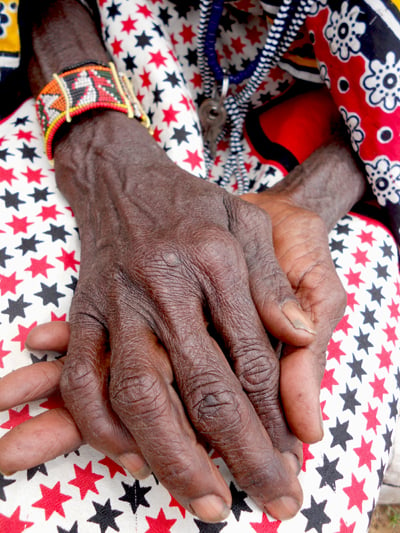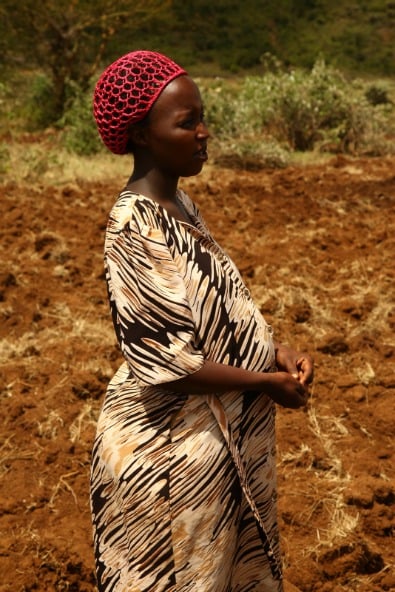

By Hannah Ford
I remember gazing at the hands of a traditional birth attendant in pastoralist Laikipia, Kenya, and wondering about the stories they might hold. How many newborns had these hands supported into the world? What challenges had been faced by the women they helped through childbirth, in their remote rural homes far from any health clinic? Beneath the rough and wrinkled surface, how much loss had they absorbed through these experiences?





























































































